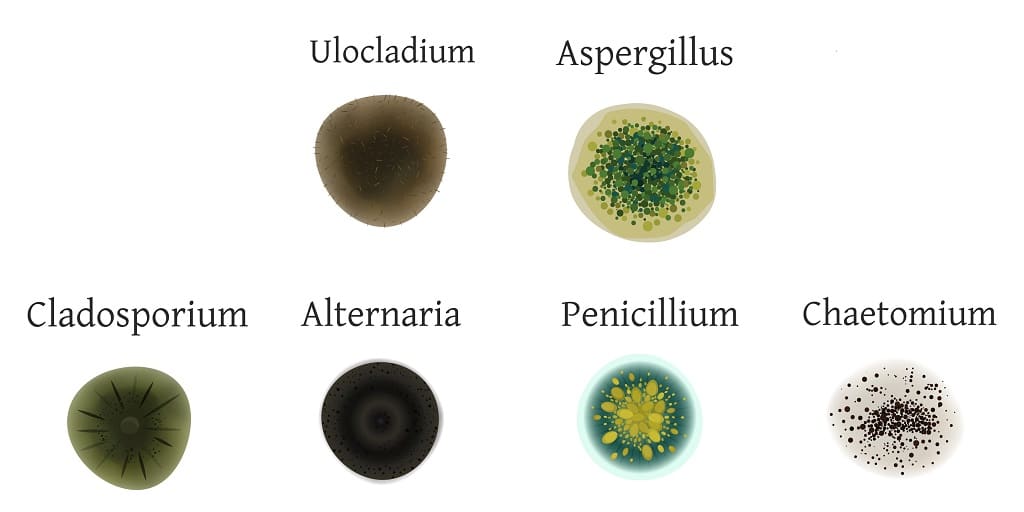
Mold is a common concern for homeowners, impacting both indoor air quality and health. However, not all molds are created equal. In this article, we’ll explore different types of molds, their effects on indoor air quality, and why it’s crucial to address mold issues promptly.
The Variety of Mold:
1. Common Mold: Cladosporium is one of the most prevalent molds, often found on surfaces like wood, fabrics, and plants.
2. Allergenic Mold: Alternaria is known to trigger allergies, asthma, and hay fever in sensitive individuals.
3. Toxic Mold: Stachybotrys, often referred to as “black mold,” produces mycotoxins that can lead to health issues.
4. Pathogenic Mold: Aspergillus can cause respiratory infections and impact immune-compromised individuals.
Impact on Indoor Air Quality:
1. Health Concerns: Mold spores become airborne and can be inhaled, potentially leading to allergies, respiratory issues, and other health problems.
2. Aggravating Allergies: For those with allergies, exposure to mold spores can exacerbate symptoms.
3. Respiratory Discomfort: Mold spores can trigger coughing, sneezing, wheezing, and other respiratory discomforts.
Recognizing Mold Growth:
1. Visible Signs: Visible mold growth is an obvious indicator of a mold problem.
2. Musty Odor: A persistent musty smell is often associated with mold growth, even if it’s not visible.
Health and Indoor Air Quality:
1. Allergic Reactions: Mold exposure can trigger allergic reactions in sensitive individuals.
2. Respiratory Issues: Mold spores can cause or worsen respiratory conditions like asthma and bronchitis.
Prompt Mold Remediation:
1. Preventing Health Issues: Addressing mold growth promptly is essential to prevent potential health problems.
2. Minimizing Property Damage: Timely remediation prevents mold from spreading and causing structural damage to your home.
Professional Mold Assessment:
1. Accurate Identification: Professional mold inspectors can accurately identify the type of mold present and its potential risks.
2. Comprehensive Remediation: Certified experts can recommend effective remediation strategies based on mold type and extent of infestation.
Conclusion:
Understanding the various types of mold and their effects on indoor air quality is crucial for maintaining a safe and healthy living environment. Whether it’s common mold, allergenic mold, toxic mold, or pathogenic mold, addressing mold growth promptly through professional remediation is essential for the well-being of you and your family.
For professional mold assessment and remediation, contact Maven Air Care at 1-866-716-2836 or email us at Info@mavenaircare.com. Our certified mold experts are ready to help you address mold issues and restore indoor air quality.



